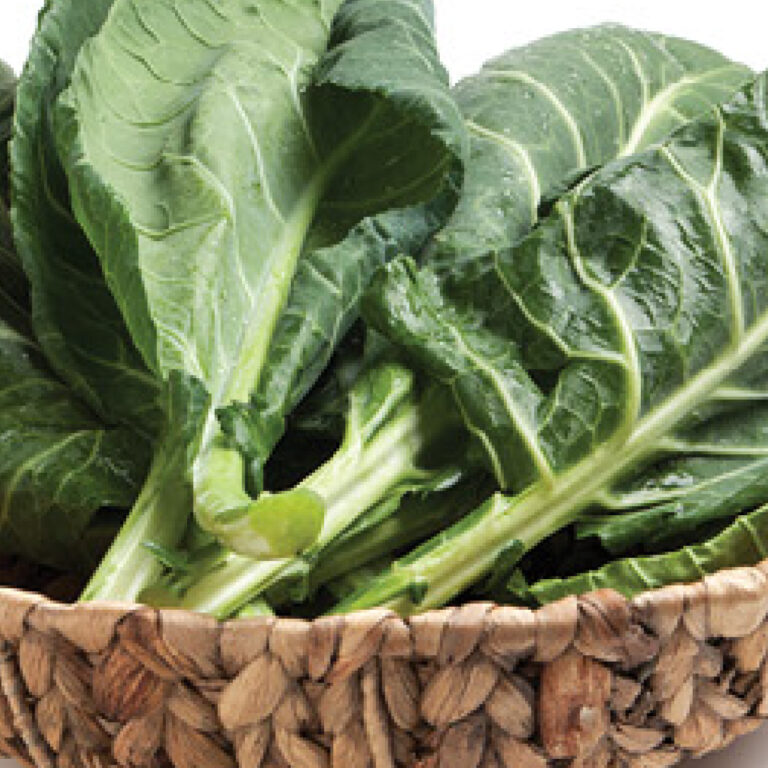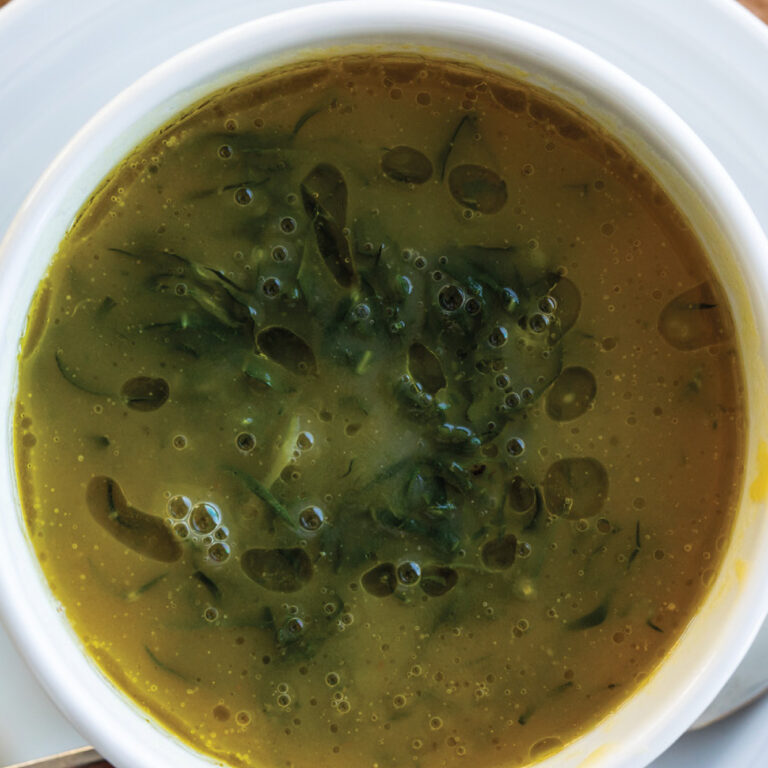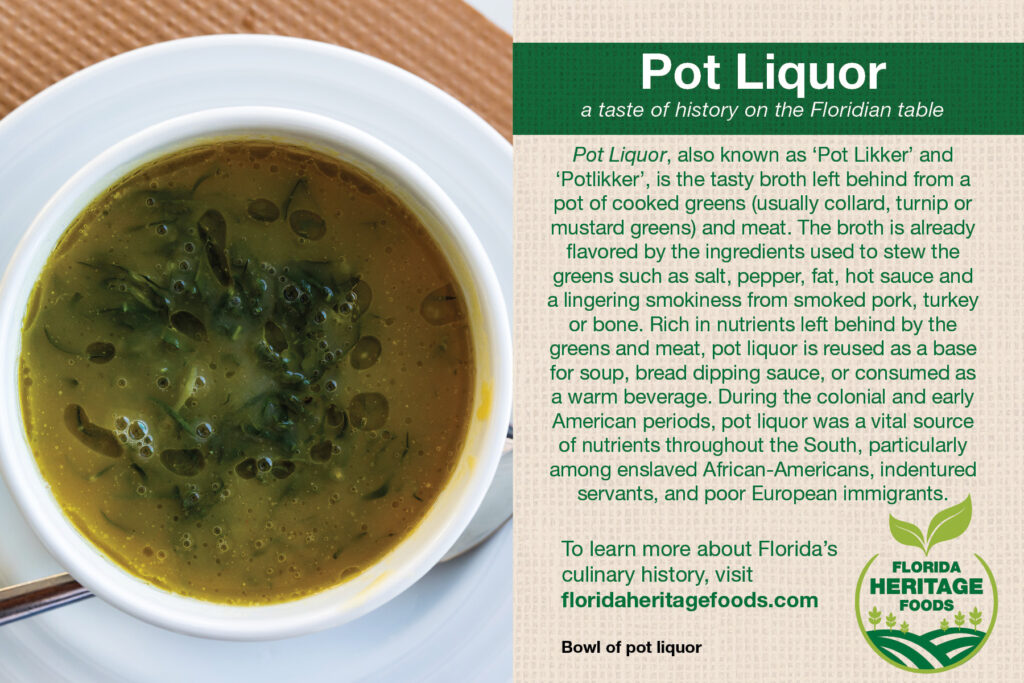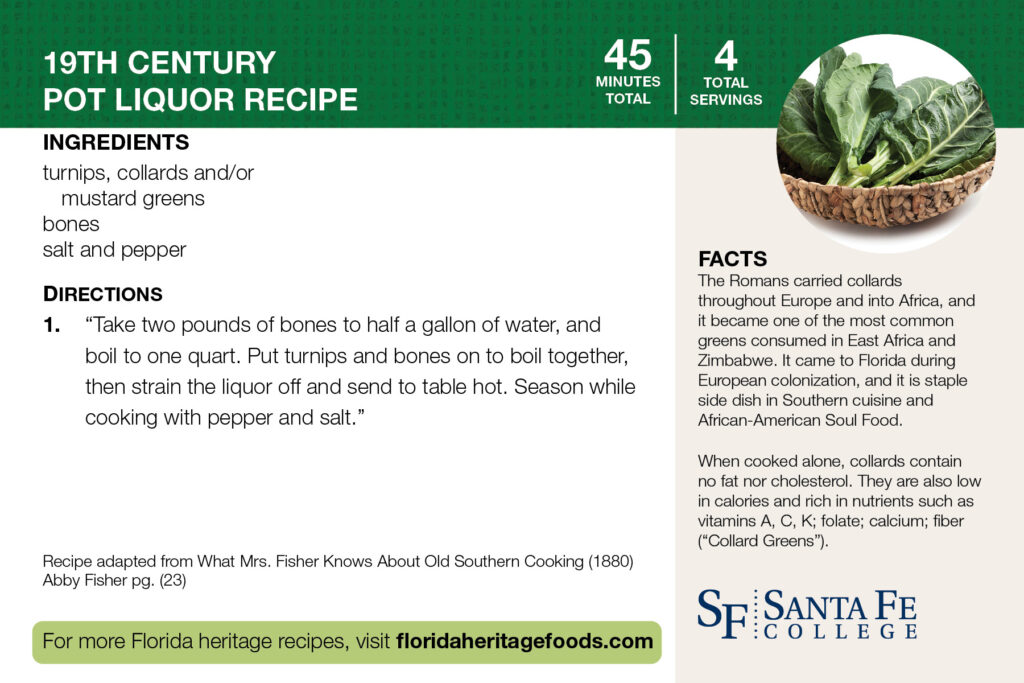Pot Liquor, also known as Pot Likker and Potlikker, is the tasty broth left behind from a pot of cooked greens (usually collard, turnip or mustard greens) and meat. The broth is already flavored by the ingredients used to stew the greens such as salt, pepper, fat, hot sauce and a lingering smokiness from smoked pork, turkey or bone. Rich in nutrients left behind by the greens and meat, pot liquor is reused as a base for soup, bread dipping sauce, or consumed as a warm beverage. During the colonial and early American periods, pot liquor was a vital source of nutrients throughout the South, particularly among enslaved African-Americans, indentured servants, and poor European immigrants.

Pot liquor was a critical source of nutrition for the large population of rural poor in the American South where the majority of people, usually enslaved African-Americans, indentured servants and poor European immigrants, could afford little more than one-pot meals. Nutritious greens, such as collards, turnips and mustard, were cheap and easy to grow in the hot and humid climate. Beef was reserved for wealthy elites, so the majority of the rural poor relied on pigs and poultry, such as chicken and turkey, for protein. In most cases, a pot of stewed greens was flavored with salted and smoked remnants of processed livestock such as pork ham hocks, the wings, feet, and neck of a turkey or chicken, or large chunks of bone. While slow cooking, the meat, bone marrow, and fat fell apart into the greens. The rich, meat-flavored broth, or pot liquor, left behind after serving the greens, contained high amounts of essential vitamins and minerals including iron, vitamin A and vitamin C. The nutrient-dense liquid was consumed as a warm beverage or soaked with cornbread. Yet the manner in which the cornbread is used has been the topic of heated debate. In 1931, in the midst of the Great Depression, Louisiana Senator, Huey Long, and President Franklin D. Roosevelt engaged in a lively dispute as Long insisted that the cornbread is dunked and Roosevelt argued that it should be crumbled into the soup. The debate not only added levity to a dark period in American history, it also attests to the economic importance of potlikker in American history.
Broth has been a nutrient-dense staple food for peoples and cultures throughout the world for millennia. In the southern region of the United States, broth from stewed greens and meat had a variety of colloquial names that include ‘pot licker,’ ‘pot likker,’ ‘pot lika,’ and more. The ingredients also varied according to diverse ethnic histories such as the Cajun influence of adding hot peppers and vinegar practices from Louisiana to the Florida Panhandle or the eastern coastal ‘low-country’ substitution of shellfish instead of pork or poultry. The many varieties of pot liquor became a distinctive part of Southern cuisine, and especially African-American cuisine known as Soul Food. The recent popularity of bone broth has brought greater attention to pot liquor in the 21st century, and this has led to a variety of new creations and international fusion recipes throughout the United States such as ‘pot liquor chowders’ and ‘pot liquor stir fry.’



Santa Fe College Partnered with Multiple Organizations in a Collaborative Effort to Bring Awareness of the Heritage Plants In Florida.
BY CULTURAL HISTORY
BY GROWING SEASON
DROUGHT TOLERANT PLANTS
Commitment to Equal Access and Equal Opportunity
Santa Fe College is committed to an environment that embraces diversity, respects the rights of all individuals, is open and accessible, and is free of harassment and discrimination. For more information, visit sfcollege.edu/eaeo or contact equity.officer@sfcollege.edu.
SACSCOC Accreditation Statement
Santa Fe College is accredited by the Southern Association of Colleges and Schools Commission on Colleges (SACSCOC). For more information, visit sfcollege.edu/sacscoc.
